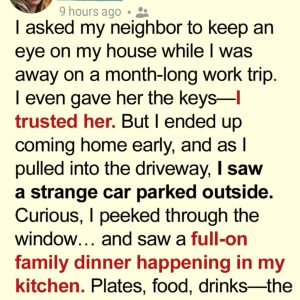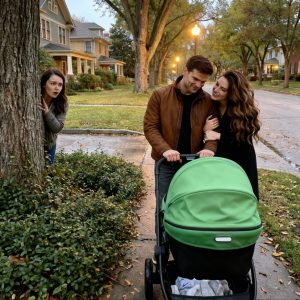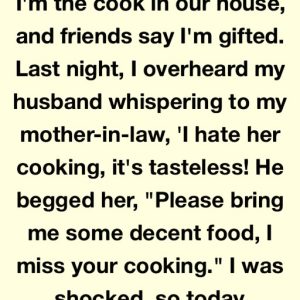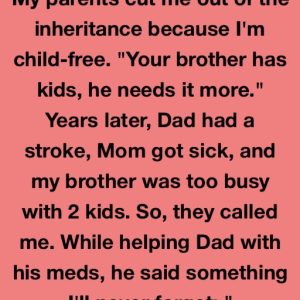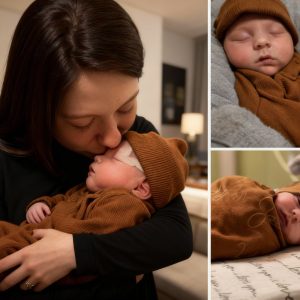At 74, fading from emphysema, I lay in a hospice room where my three children hadn’t visited in over half a year. Days blurred together in silence. I was utterly alone.
Then **Ethan**, a broad-shouldered biker covered in ink, wandered in by mistake. He noticed my old service medal on the nightstand and didn’t leave. He pulled up a chair, called me “brother,” and listened while I told him how my kids had walked away from me.
He leaned in close and said quietly, *“I can’t force them to love you—but I can make sure they remember this forever. You want that?”*
I nodded.
And for the first time in months, I smiled.
Marcus didn’t leave that day.
He came back the next afternoon with burnt coffee in a paper cup and a chair he dragged from the hallway. He told me about the road, about the brotherhood that had nothing to do with blood. I told him about my kids—how birthdays turned into texts, then nothing at all. How the silence hurt more than the cancer ever could.
A week later, my nurse wheeled me into the common room. Sitting there were three people who looked strangely uncomfortable in folding chairs.
My children.
They hadn’t come out of guilt. They came because Marcus had found them. Not threatened them—no fists, no shouting. He’d simply shown up, Purple Heart in hand, and quietly told them what kind of man they were about to lose… and exactly how the world would remember them if they never said goodbye.
That was enough.
They cried. They apologized. Some of it was clumsy, some of it late. But I listened, because that’s what fathers do. I forgave them—not for them, but for me.
Two days later, Marcus was there again. He saluted when he saw me, called me “brother” one last time, and squeezed my hand like it mattered.
When I passed, I wasn’t alone.
And at my funeral, after my kids spoke, a line of bikers stood at the back—helmets off, heads bowed. That’s when my oldest finally understood:
Family isn’t who shares your name.
It’s who shows up when you’re fading.
And Marcus did — until the very end.

